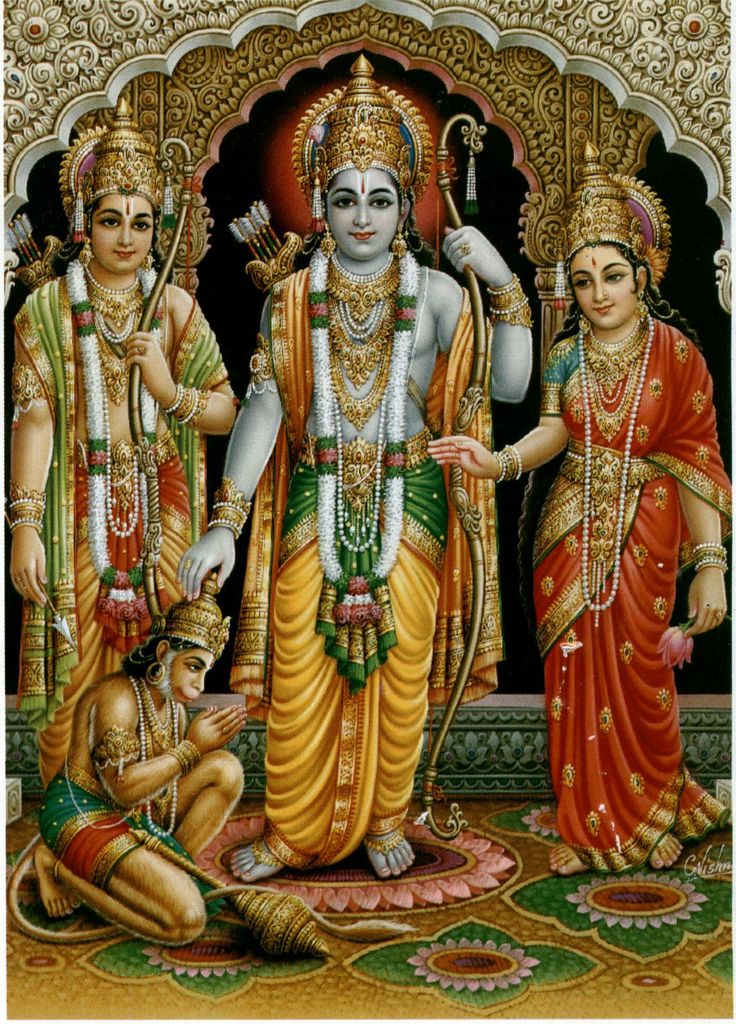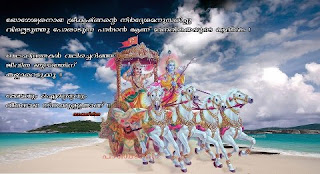A Study of Upanishads:
Mantra 5
...............
This Self is to be known in this very life. If it is known here, there is meaning for this life. If one does not know it here, great is the loss to such a one. It is possible to realise the Self in this very life itself. It is not necessary to take several future births for this purpose, if only one is able to make the best use of one’s life. It is not the length of time for which sadhana is practised, but the nature of the intensity with which sadhana is practised, that is to be taken into account. It is not the quantity but the quality of sadhana that matters. A spark of fire can burn even a mountain of straw. The assiduity with which sadhana is carried on is the sole factor that determines the value of that sadhana. But the preparation necessary for the actual ultimate process is very great, and it takes practically all the time. It is possible to put an end to the process of the expression of the results of the desires by negating their values and by directing that consequential energy to concentration of consciousness. The failure to practise this kind of energetic endeavour leaves the present and the past actions free to manifest their fruits and thus continue the process of transmigration.
The spiritual hero distinguishes between the truth of the spirit and the untruth of the forms of experience in which it appears to be involved. The lack of interest shown in the forms of thought necessitates the dropping of such forms from one’s experience. This independent experience is called immortality. It is the process of Brahmabhyasa or the practice of the affirmation of the one Reality in every form of experience that can liberate the individual from its individualistic experiences. In other words, it is to feel oneself as the All, to feel that All is centred in one’s Self, that is called brahmabhavana. This results in the disentanglement of the Self from the notions of ‘I-ness’ and ‘mine-ness’, from the relationships and attitudes that bind the individual with its experiences and lock it up in the prison of its notions. There is no hope of the attainment of the highest Divinity as long as one wishes to be this or that, to have this or that experience, to care for some experience or the other. It is a total absorption of oneself, a practical death, as it were, to all the experiences of the earth and the heaven, a ceasing from living, a wanting nothing, an absolute denial of anything, that is presented as an experience internally or externally, that is required of the persevering aspirant after liberation. Knowing and being the Absolute mean the same thing. It is not possible to know it without being it.
To live in the universe of experience is to desert the immortal, and to live as the immortal is to abandon the phenomenal experiences. The ardour with which the process has to be undergone is unimaginable. The greater it is, the lesser it should be considered to be. The greater the wisdom, the greater should be the inspiration for deepening that wisdom. The higher one proceeds, the still higher one has to aspire to climb, until there is the uncontradicted experience of Absolute Being. All this is possible through an intense acuteness of the means of approach and an admirable endeavour that shall break the personality to pieces. It is the Supreme Fulfilment attained though Supreme Negation. It is the burning up of love for the sake of living in the centre of the Absolute, in which love melts into experience. Desires and loves move, they proceed, and do not rest in them selves. But experience is motionless and rests in itself forever. It is the Supreme Death of all, for the sake of Supreme Living.
Kenoupanishad Continues: Section-2.
...............
This Self is to be known in this very life. If it is known here, there is meaning for this life. If one does not know it here, great is the loss to such a one. It is possible to realise the Self in this very life itself. It is not necessary to take several future births for this purpose, if only one is able to make the best use of one’s life. It is not the length of time for which sadhana is practised, but the nature of the intensity with which sadhana is practised, that is to be taken into account. It is not the quantity but the quality of sadhana that matters. A spark of fire can burn even a mountain of straw. The assiduity with which sadhana is carried on is the sole factor that determines the value of that sadhana. But the preparation necessary for the actual ultimate process is very great, and it takes practically all the time. It is possible to put an end to the process of the expression of the results of the desires by negating their values and by directing that consequential energy to concentration of consciousness. The failure to practise this kind of energetic endeavour leaves the present and the past actions free to manifest their fruits and thus continue the process of transmigration.
The spiritual hero distinguishes between the truth of the spirit and the untruth of the forms of experience in which it appears to be involved. The lack of interest shown in the forms of thought necessitates the dropping of such forms from one’s experience. This independent experience is called immortality. It is the process of Brahmabhyasa or the practice of the affirmation of the one Reality in every form of experience that can liberate the individual from its individualistic experiences. In other words, it is to feel oneself as the All, to feel that All is centred in one’s Self, that is called brahmabhavana. This results in the disentanglement of the Self from the notions of ‘I-ness’ and ‘mine-ness’, from the relationships and attitudes that bind the individual with its experiences and lock it up in the prison of its notions. There is no hope of the attainment of the highest Divinity as long as one wishes to be this or that, to have this or that experience, to care for some experience or the other. It is a total absorption of oneself, a practical death, as it were, to all the experiences of the earth and the heaven, a ceasing from living, a wanting nothing, an absolute denial of anything, that is presented as an experience internally or externally, that is required of the persevering aspirant after liberation. Knowing and being the Absolute mean the same thing. It is not possible to know it without being it.
To live in the universe of experience is to desert the immortal, and to live as the immortal is to abandon the phenomenal experiences. The ardour with which the process has to be undergone is unimaginable. The greater it is, the lesser it should be considered to be. The greater the wisdom, the greater should be the inspiration for deepening that wisdom. The higher one proceeds, the still higher one has to aspire to climb, until there is the uncontradicted experience of Absolute Being. All this is possible through an intense acuteness of the means of approach and an admirable endeavour that shall break the personality to pieces. It is the Supreme Fulfilment attained though Supreme Negation. It is the burning up of love for the sake of living in the centre of the Absolute, in which love melts into experience. Desires and loves move, they proceed, and do not rest in them selves. But experience is motionless and rests in itself forever. It is the Supreme Death of all, for the sake of Supreme Living.
Kenoupanishad Continues: Section-2.
.jpg)


Comments
Post a Comment